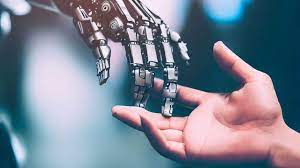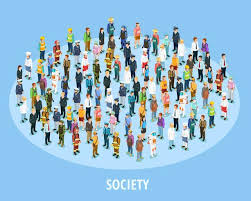The Rise of Artificial Intelligence: Transforming Our World
Artificial Intelligence (AI) has rapidly evolved from a niche field of computer science to a transformative force impacting various aspects of our daily lives. From healthcare and finance to entertainment and transportation, AI technologies are reshaping industries and offering new possibilities.
Understanding AI
At its core, AI refers to the simulation of human intelligence processes by machines, particularly computer systems. These processes include learning, reasoning, problem-solving, perception, and language understanding. The goal is to create systems that can perform tasks that would normally require human intelligence.
Applications of AI
The applications of AI are vast and varied. Here are some key areas where AI is making a significant impact:
- Healthcare: AI is revolutionizing healthcare by enabling more accurate diagnostics, personalized treatment plans, and efficient drug discovery processes. Machine learning algorithms can analyze medical data to predict patient outcomes and assist in early disease detection.
- Finance: In the financial sector, AI is used for fraud detection, risk management, algorithmic trading, and personalized banking services. By analyzing large datasets quickly and accurately, AI helps financial institutions make informed decisions.
- Transportation: Autonomous vehicles are one of the most visible examples of AI in transportation. These vehicles use sensors and machine learning algorithms to navigate roads safely without human intervention.
- Entertainment: Streaming services use AI algorithms to recommend content based on user preferences. Additionally, AI is used in video game development for creating realistic environments and intelligent non-player characters (NPCs).
The Ethical Considerations
The rapid advancement of AI also raises important ethical considerations. Issues such as privacy concerns, job displacement due to automation, bias in algorithmic decision-making, and the need for transparent AI systems are at the forefront of discussions among experts.
Privacy Concerns
The collection and analysis of vast amounts of personal data by AI systems pose significant privacy challenges. Ensuring that data is handled responsibly and securely is crucial to maintaining public trust.
Bias in Algorithms
AIs trained on biased data can perpetuate or even exacerbate existing biases. It is essential for developers to implement methods that identify and mitigate bias within their algorithms to ensure fairness across all applications.
The Future of AI
The future looks promising for artificial intelligence as research continues to push boundaries. Innovations such as quantum computing could further accelerate the capabilities of AIs beyond current limitations.
As we move forward into this exciting era driven by technological advancements like never before seen throughout history; it becomes increasingly vital for society not only embrace but also responsibly guide these changes toward positive outcomes benefiting humanity collectively rather than solely individual interests alone!
Top 8 Frequently Asked Questions About Artificial Intelligence (AI)
- What is Artificial Intelligence (AI)?
- How does Artificial Intelligence (AI) work?
- What are the applications of Artificial Intelligence (AI)?
- What are the benefits of Artificial Intelligence (AI)?
- What are the ethical concerns surrounding Artificial Intelligence (AI)?
- How is Artificial Intelligence (AI) impacting various industries?
- Can Artificial Intelligence (AI) replace human jobs?
- What is the future of Artificial Intelligence (AI)?
What is Artificial Intelligence (AI)?
Artificial Intelligence (AI) is a branch of computer science focused on creating systems capable of performing tasks that typically require human intelligence. These tasks include learning from data, recognizing patterns, understanding natural language, solving complex problems, and making decisions. AI technologies leverage algorithms and computational models to simulate cognitive processes, enabling machines to adapt to new inputs and improve their performance over time. AI can be categorized into narrow AI, which is designed for specific tasks like speech recognition or image classification, and general AI, which aims to perform any intellectual task a human can do. As AI continues to evolve, it holds the potential to transform industries and enhance various aspects of daily life.
How does Artificial Intelligence (AI) work?
Artificial Intelligence (AI) works by using algorithms and models to simulate human cognitive processes. At its foundation, AI involves the use of machine learning, where systems are trained on large datasets to recognize patterns and make decisions. This training process involves feeding data into algorithms, which then adjust and improve their performance over time through a method called “training.” For instance, in supervised learning, an AI model is trained on labeled data—meaning the desired output is already known—allowing the system to learn from examples. In unsupervised learning, the system identifies patterns and relationships in unlabeled data. Additionally, AI systems often utilize neural networks that mimic the human brain’s interconnected neuron structure to process complex information efficiently. Through these methods, AI can perform tasks such as image recognition, natural language processing, and decision-making with increasing accuracy and sophistication.
What are the applications of Artificial Intelligence (AI)?
Artificial Intelligence (AI) has a wide range of applications across various industries, transforming how tasks are performed and decisions are made. In healthcare, AI is used for diagnostic purposes, predictive analytics, and personalized medicine, improving patient outcomes and operational efficiency. In finance, AI powers algorithmic trading, fraud detection, and customer service automation through chatbots. The transportation sector benefits from AI through advancements in autonomous vehicles and traffic management systems. Retailers utilize AI for inventory management, personalized marketing, and enhancing customer experiences with recommendation engines. Additionally, AI is pivotal in manufacturing for optimizing supply chains and enabling predictive maintenance of equipment. These applications illustrate how AI is becoming an integral part of modern society by streamlining processes and providing innovative solutions to complex problems.
What are the benefits of Artificial Intelligence (AI)?
Artificial Intelligence (AI) offers numerous benefits across various fields, significantly enhancing efficiency and productivity. In healthcare, AI enables quicker and more accurate diagnoses, personalized treatment plans, and streamlined administrative processes. In the business sector, AI-driven analytics provide valuable insights for decision-making, optimize supply chains, and improve customer experiences through personalized marketing. Furthermore, AI enhances safety and efficiency in transportation with autonomous vehicles and traffic management systems. In education, AI personalizes learning experiences by adapting to individual student needs. Overall, AI’s ability to process vast amounts of data quickly leads to smarter solutions and innovations that improve both daily life and long-term outcomes.
What are the ethical concerns surrounding Artificial Intelligence (AI)?
The ethical concerns surrounding Artificial Intelligence (AI) are multifaceted and complex, encompassing issues such as privacy, bias, accountability, and job displacement. Privacy concerns arise from the vast amounts of personal data that AI systems collect and analyze, often without explicit user consent or adequate security measures. Bias in AI algorithms is another significant issue; if these algorithms are trained on biased data sets, they can perpetuate or even amplify existing societal biases, leading to unfair outcomes in areas like hiring or law enforcement. Accountability is also a critical concern, as it can be challenging to determine responsibility when AI systems make decisions that have significant impacts on individuals and communities. Additionally, as AI continues to automate tasks across various industries, there is growing concern about job displacement and the need for workforce reskilling. Addressing these ethical challenges requires a collaborative effort among developers, policymakers, and society at large to ensure that AI technologies are developed and deployed responsibly.
How is Artificial Intelligence (AI) impacting various industries?
Artificial Intelligence (AI) is having a profound impact across various industries by enhancing efficiency, accuracy, and innovation. In healthcare, AI is transforming diagnostics and treatment planning through advanced data analysis and predictive modeling, leading to more personalized patient care. The finance sector benefits from AI-driven algorithms that improve fraud detection, automate trading, and enhance customer service through chatbots. In manufacturing, AI optimizes production lines with predictive maintenance and quality control, reducing downtime and costs. Retail businesses leverage AI for inventory management and personalized marketing strategies based on consumer behavior analysis. Additionally, in the transportation industry, AI powers autonomous vehicles and smart logistics systems that increase safety and streamline operations. Overall, AI is driving significant advancements by enabling industries to operate smarter and more effectively.
Can Artificial Intelligence (AI) replace human jobs?
The question of whether Artificial Intelligence (AI) can replace human jobs is a topic of significant debate and concern. AI has undoubtedly transformed various industries by automating routine and repetitive tasks, leading to increased efficiency and productivity. While certain jobs, particularly those involving manual or data-driven tasks, are at risk of automation, AI also creates new opportunities by generating demand for roles in AI development, maintenance, and oversight. Moreover, many jobs require human creativity, emotional intelligence, and complex decision-making that AI cannot replicate. The key challenge lies in balancing the integration of AI with workforce development to ensure that workers are equipped with the skills needed for emerging roles in an increasingly automated world.
What is the future of Artificial Intelligence (AI)?
The future of Artificial Intelligence (AI) is poised to be both transformative and expansive, impacting a wide array of industries and aspects of daily life. As AI technologies continue to advance, we can expect more sophisticated machine learning models, enhanced natural language processing capabilities, and greater integration into everyday devices. AI is likely to play a pivotal role in addressing global challenges such as climate change, healthcare accessibility, and efficient resource management. However, the future also brings important considerations regarding ethical use, privacy concerns, and the potential for job displacement due to automation. Balancing innovation with responsibility will be crucial as society navigates the evolving landscape of AI. Overall, the future of AI holds immense potential to drive progress while necessitating thoughtful oversight and regulation.




